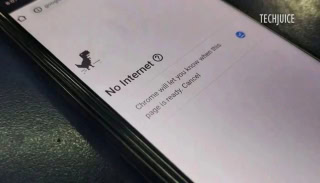5G pacesetters – the front-running communications service providers (CSPs) currently driving the global demand for consumers 5G – are three times more likely to retain customers and almost twice as likely to grow average revenue per user (ARPU) and mobile services revenues compared to other CSPs. Those are some of the findings in the new 5G Pacesetters report from Ericsson ConsumerLab (NASDAQ: ERIC).
The report is the industry’s first consumer 5G market analysis to combine consumer satisfaction data with market facts, assessing the 5G maturity and market revenue strategies of 73 CSPs across 22 markets globally, based on 105 criteria.
The report identifies four stages of 5G maturity: 5G Explorers – those at the start of their 5G journey; 5G Potentials – CSPs with satisfied consumers due to better performing 4G networks but have not invested much on evolving 5G network and offerings; 5G Aspirationals – CSPs perceived as market challengers aiming high with 5G while striving to improve consumer satisfaction; 5G Pacesetters – who are more advanced in setting the pace on delivering best in class 5G coverage, performance, and innovation but still have room to improve even further.
5G Pacesetters – the one-in-five of the studied CSPs widely perceived by consumers to be the market leaders within the 5G consumer segment are not necessarily market share leaders or incumbents in their local markets.
They are characterized by the best net promoter score (NPS) in their markets as well as driving innovation by already offering on an average of three consumer 5G services such as cloud gaming, immersive video (AR/VR) and 5G fixed wireless access.
While advanced 5G markets in North-East Asia and North America account for the largest share of CSPs in the 5G Pacesetter category, one-third are in Europe.
Key 5G pacesetter insights:
- 50 percent of 5G Pacesetter category CSPs increased ARPU by one percent or more year-on-year compared to a quarter of all other CSPs
- 75 percent of the 5G Pacesetter monetize 5G based on tiers of speed, quality of service, fixed-mobile convergence (FMC) or bundled content
- 5G Pacesetter category CSPs have an average 5G population coverage of 75 percent, download speeds of 270 Mbps, and average 5G availability of 14 percent or above
- On average, 70 percent of pacesetter’s subscribers consider them to be a 5G market leader
- Almost 50 percent of 5G Pacesetter category CSPs have already launched 5G fixed wireless access
- 5G Pacesetter category CSPs are the most proactive in implementing 5G standalone and multi-access edge computing (MEC) capabilities
Based on market-leading strategic insights, the report suggests different paths which CSPs can take to emerge as, or improve their position as, 5G pacesetters:
- Build extensive coverage and communicate milestones
- Improve marketing of 5G to gain perception leadership
- Extend coverage indoors and improve the speed
- Explore 5G convergent offerings
- Provide home broadband on 5G
- Innovate with tariff plans by upselling to higher value 5G tiers
- Offer new immersive services and experiences for consumers
- Nurture ecosystem partnerships and programs for the smartphone and beyond
Erik Ekudden, CTO, Ericsson, says:
“A commitment towards technology leadership and network quality is key to unlock CSP 5G revenue growth by enhancing the core consumer business while at the same time exploring new business opportunities. Not surprisingly, 5G Pacesetters seek new ways of challenging industry conventions to make 5G connectivity more relevant to people, business and society.”
Jasmeet Singh Sethi, Head of ConsumerLab, Ericsson Research, says:
“5G-enabled consumer services can unlock up to USD 3.7 trillion in cumulative revenue opportunities for communications service providers (CSPs) by 2030. This report outlines that 5G pacesetters who can demonstrate an ability to adopt new technologies, influence consumer perception and are prepared to invest and focus on 5G service innovation, are already stepping ahead of competitors in the race to new revenue opportunities. By exploring new 5G-enabed opportunities, more CSPs can become 5G pacesetters and grow their revenues at the same rate.”












